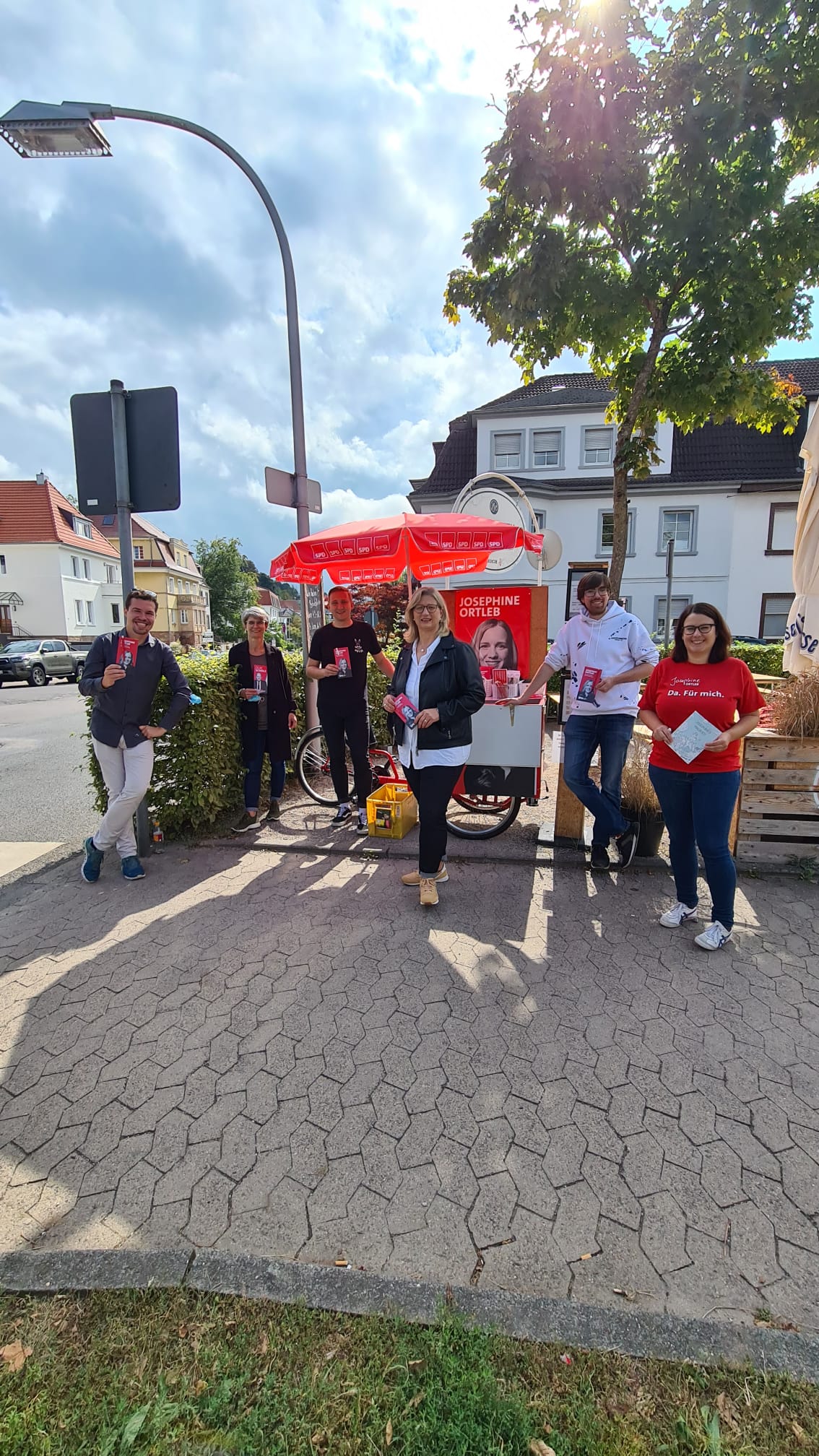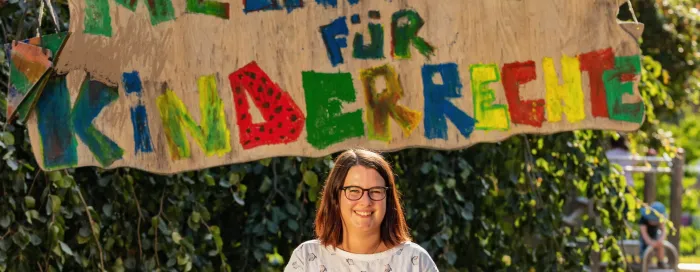In this interview, Christine Jung, Saarbrücken City Councillor (Germany), explains how her region Saarland is promoting youth engagement in politics with a series of initiatives that even go beyond borders.
The interview is part of our interview series “Youth for Europe, Europe for Youth”, which puts the spotlight on the many inspiring initiatives implemented by progressive cities and regions in Europe in relation to youth policies.
Why is your region a progressive region when it comes to youth engagement?
In 2021, Saarland embarked on a youth strategy. With young people having particularly suffered from the consequences of coronavirus-related restrictions, the Saarland State Parliament organised a 4-day hearing on youth policy in its own right. Experts were invited to the hearing, but also representatives from ministries, youth welfare providers, youth parties, youth organisations, churches and environmental associations, among others. The hearing stood out for its holistic approach and the full participation of young people. With the Landesjugendring (State youth council), Saarland has a strong voice in child and youth policy, which champions the interests of young people.
The hearing showed that young people want to get involved in all areas relevant to society, such as climate action, mobility, education, culture and digitalisation. They want to be heard but also to take responsibility. Young people also want to participate in decision-making at an earlier age, and so the voting age should be lowered to 16. A youth check could also be an important way of addressing young people's concerns. This means that legislative proposals are consistently scrutinised for their impact on young people and adapted if needed.
However, it has also become clear that, given their life situation, many young people have little chance of participating because they are living in poverty. Often, these young people do not have a quiet place to learn, have no PC, are not members of associations, and are not very mobile. The pandemic has exacerbated this trend. Educational institutions were closed for weeks, especially in Germany, and access to education was difficult for a long time. Young people were isolated because places where they could meet were closed and private meetings were banned. The mental burden on young people increased sharply. This is why surveys of young people also call for a greater commitment to mental health.
In order to safeguard democracy, young people must participate in decision-making early and learn they can achieve things themselves. Especially in times of fake news and with the volatility of political parties, young generations must learn to appreciate the value of democracy. As municipalities, we can provide young people with spaces where they can meet, where youth work can take place and where young people learn to empower themselves.
This state parliament hearing is the starting point for a holistic child and youth policy of the new state government, which has resolved to combat child poverty, ensure equality in education and strengthen opportunities for democratic participation.
Can you share with us one or more successful initiatives that you put in place aimed at empowering young people in your region?
Saarbrücken and Saarland support youth engagement at many levels.
An important focus here is on democratic education. Cross-border youth work also plays an important role due to the geographical position on the Franco-German border and to historically important sites such as the battlefields of Spicherer Höhe and the former Gestapo camp in Neue Bremm. Every year, young people from Germany, France and Luxembourg come here for Buddeln und Bilden workshops (maintenance and education workshops).
The Regionalverband Saarbrücken (Saarbrücken Regional Association), which is responsible for social policy at local level, participates, among other things, in the federal programme Demokratie Leben! (Democracy Life!), with a special focus on young people. Support is given to projects that promote young people's involvement and address the topic of "participation" as open educational opportunities. In seven youth centres across Saarbrücken, rooms are made available for young people for meetings, activities and projects.
The state capital of Saarbrücken, with its twin city of Nantes, has introduced the idea of the Young Ambassadors, where two young ambassadors from Nantes and Saarbrücken represent their cities in the partner city. In a European environment, they are in direct contact with many young people and active associations, youth and European organisations, creating enthusiasm for the European idea and social engagement.
In your opinion, what should be the 3 key priorities for the progressive family Europe when it comes to youth policies?
1. Climate action: We need to ensure that the livelihoods of the next generation are preserved. We need to provide progressive responses to how we can achieve the goals of the Paris Climate Agreement, while at the same time managing the sustainable transition in a fair way.
2. Trust: For young people to engage actively, they need trust in democratic values and the hope that they can have a say. We need to prevent young people from turning away from democracy and towards extremist parties. To achieve this, we need to take the participation of young people seriously and give them opportunities to actively take part. This includes voting rights from the age of 16, but also tangible ways of influencing projects on the ground.
3. Combating poverty: Child and youth poverty hampers access to quality education, is a cause of mental illness and prevents participation in society. Childhood and adolescence lay the foundations for life as a whole. This is why we need to improve social infrastructure for families with children, strengthen the education system and also shape the labour market in a way that reconciles family and professional life.

What do you believe is the role that young people can play in the 2024 European elections?
The traffic light coalition in Germany recently decided to lower to 16 the voting age for the next European elections. This is the right thing to do and also important. Because many policy decisions we take today – whether at municipal, regional, federal or EU level – have long-term consequences for future generations. It makes sense for young people to have a say here and to want to shape their future. The decisions taken today will affect young people not only at some point, but right now. Young people have a clear idea of how the world they live in should look in 20 or 30 years' time. And they should also be able to feed these ideas into politics and help shape them. Lowering the voting age to16 therefore offers a special opportunity to generate enthusiasm among young people for democracy and the European idea. Young people in particular place many hopes in Europe when it comes to their future. As a progressive party, we should develop our vision for Europe together with young people.
